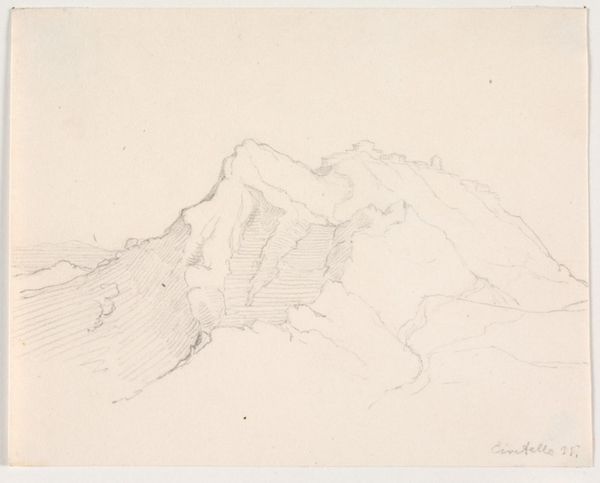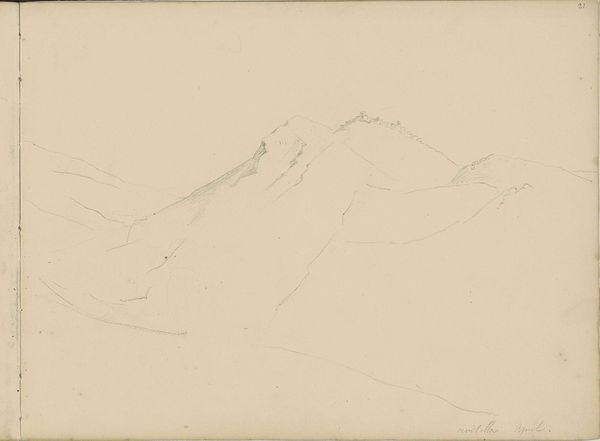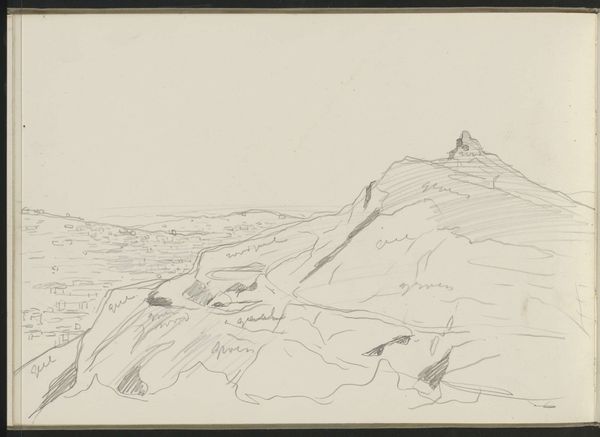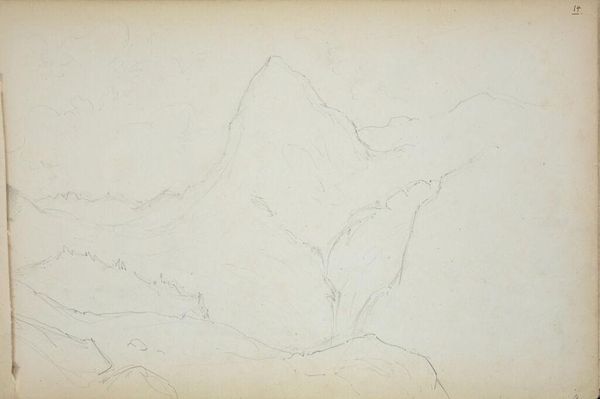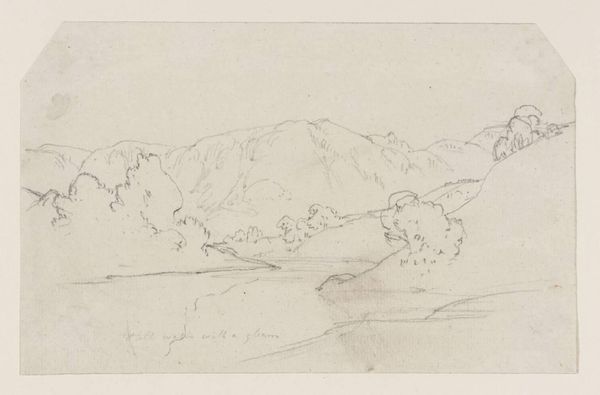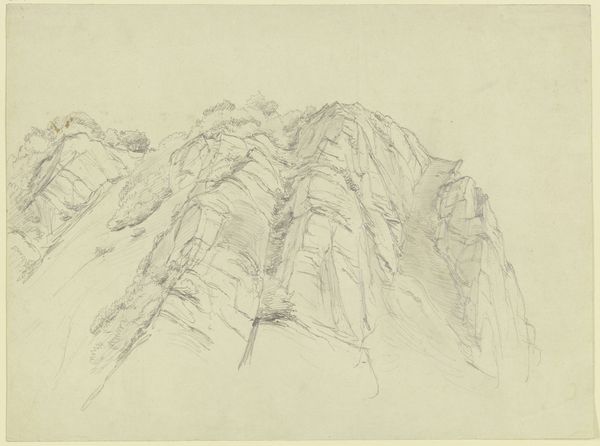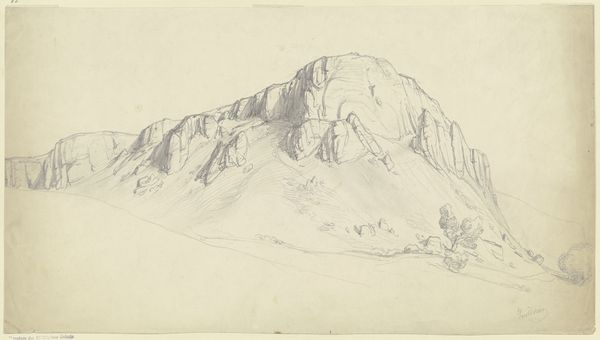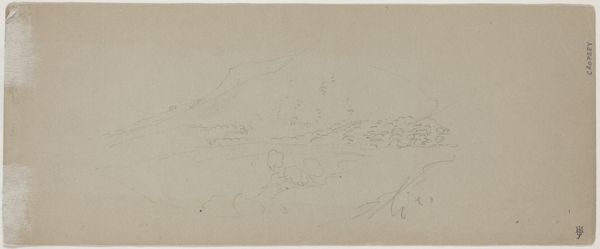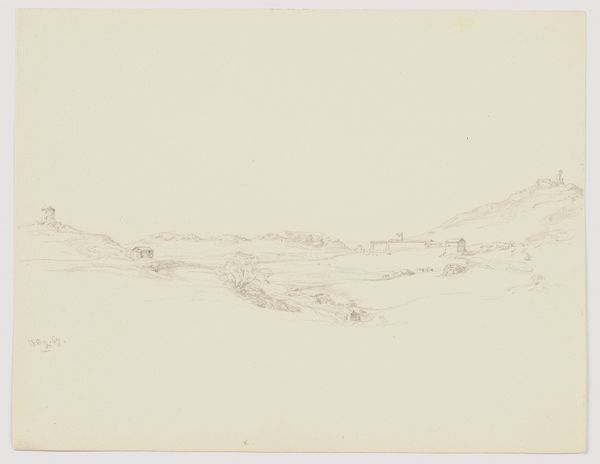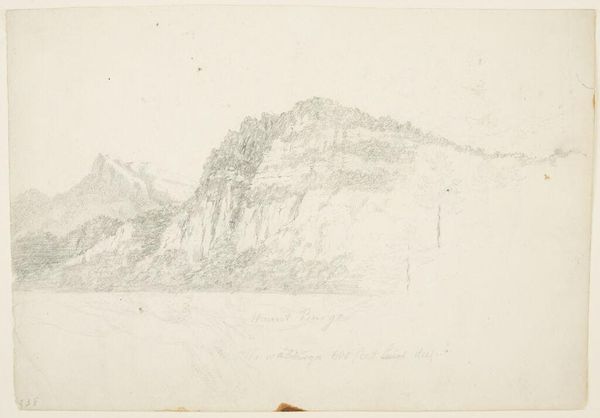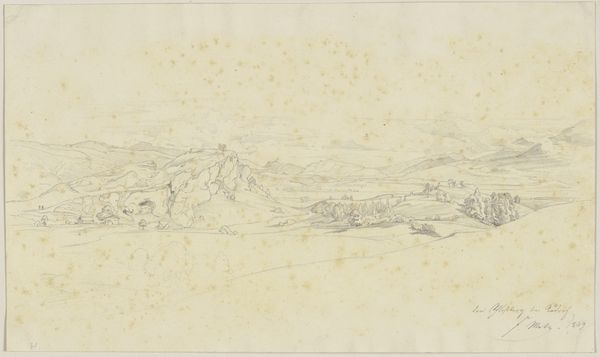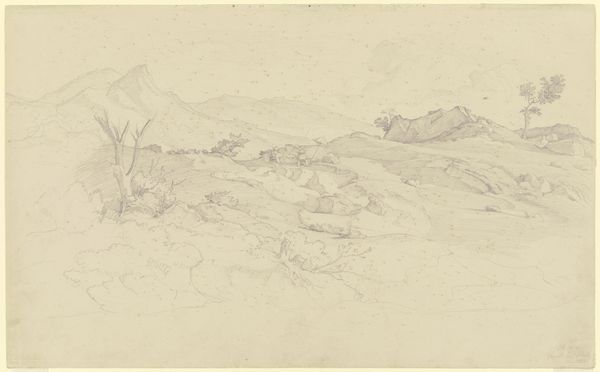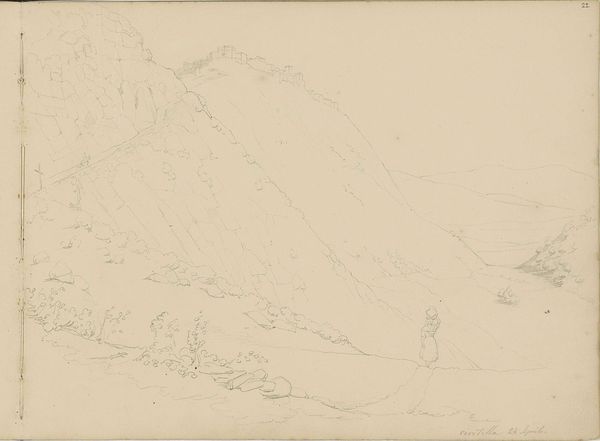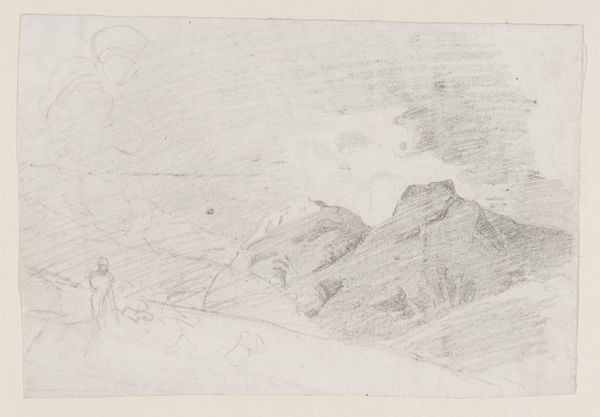
Gezicht op de krater van de Gunung Gamalama, Noord-Molukken 1824
0:00
0:00
adrianusjohannesbik
Rijksmuseum
drawing, pencil
#
pencil drawn
#
drawing
#
pencil sketch
#
landscape
#
etching
#
romanticism
#
pencil
#
realism
Dimensions: height 273 mm, width 446 mm
Copyright: Rijks Museum: Open Domain
This graphite drawing of Gunung Gamalama was made in the North Moluccas by Adrianus Johannes Bik, a Dutch artist active in the first half of the 19th century. The graphite pencil, though appearing simple, was crucial to European expansion and colonial exploitation in this period. Graphite was mined and manufactured into pencils, enabling rapid visual documentation. It allowed artists like Bik to efficiently record landscapes and resources in colonized territories. The texture of the drawing is defined by the artist’s hand, swiftly capturing the mountain’s form with delicate, almost topographic lines. Notice how Bik uses hatching and shading to suggest volume and depth, while the paper's surface remains visible, adding an atmospheric quality. In this context, drawing becomes a tool for surveying and claiming distant lands, subtly implicated in the era’s politics and labor.
Comments
No comments
Be the first to comment and join the conversation on the ultimate creative platform.
